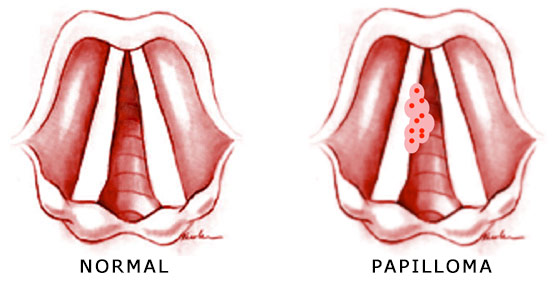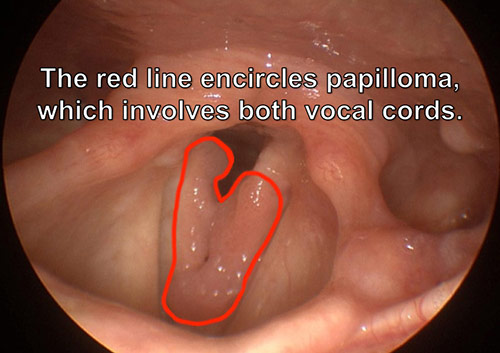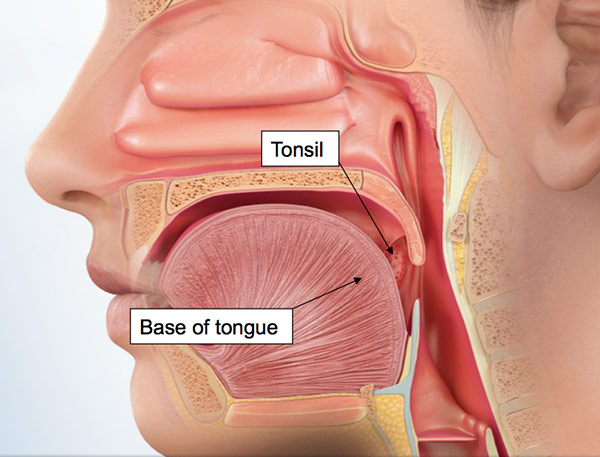- India Medical Mission 2018 - November 1, 2018
- Sleep Disorders: Sleep Apnea and Upper Stimulation Therapy - August 25, 2015
- The Naked Vocalist Podcast Featuring Dr. Reena Gupta - May 27, 2015
- New Therapy for Sleep Apnea – First Sleep Pacemaker placed in California at Osborne Head and Neck Institute. - December 12, 2014
- Boxer’s Ear: Can your ear explode? - December 12, 2014
- Nose Picking (Rhinotillexis) and Septal Perforations: Why I should stop picking my nose…? - November 24, 2014
- Deviated Septum and Septal Perforation - July 28, 2014
- Hereditary Hemorrhagic Telangiectasia: Nasal Septal Perforation Repair - June 25, 2014
- Dr. Mantle recognized at the Beverly Hills Medical Science Academy Awards - May 8, 2014
- Commonly Misdiagnosed Pathologies: Arteriovenous Malformations - April 9, 2014

Human papilloma virus (HPV) is a virus that causes many different diseases. Most women become familiar with this virus when a routine pap smear turns up unexpectedly abnormal. This often occurs when HPV infects the cervix, causing the cells to change, and resulting in a risk of developing cervical cancer.
Attention is now being focused on HPV elsewhere: the throat. It is clear that HPV infection does increase the risk of developing head and neck cancer. At this time, there is still much to be learned about HPV infection of the throat and the disease it causes there.
How does HPV infect the throat?
It is not fully understood how the human papilloma virus enters the throat/airway in adults. It is thought that sexual transmission is most likely and may be the most common means of transmission. However, HPV is found in those who have never been sexually active, suggesting that there are alternative means of transmission. This may include simple acts including sharing beverages and kissing or other means that are not yet known.
What happens when HPV infects the throat?
The most common outcome when HPV infects the throat is for the body to eliminate the virus on its own. This most often occurs without symptoms and usually, a patient will never know that they were infected with HPV.
Rarely, HPV of the throat can cause a disease called recurrent respiratory papillomatosis. This is a disease where HPV causes warty growths in the throat, most commonly on the vocal cords themselves. This may result in:
- Hoarseness
- Vocal fatigue
- Loss of vocal range
- Difficulty breathing


Certain strains of HPV that cause respiratory papillomas may also result in papillomas becoming cancerous. The most common location for this to occur is in the larynx, although it may occur anywhere in the respiratory tract.
Certain strains of HPV respiratory papillomas can convert to cancerous lesions. The most common location for HPV infection in the airway to convert to a cancer is in the larynx (voice box), although it may occur anywhere in the respiratory tract, including the base of tongue (back of the tongue) and the tonsils.

This does not mean that HPV causes cancer of the tongue and tonsils. Rather, it is now thought to be a risk factor for these tumors.
How do I know if I have HPV of the throat?
There is no way to know for sure without seeing your otolaryngologist (ear, nose and throat doctor) and sometimes even they are not able to tell you for sure. However, certain things are suggestive:
- Having a hoarse voice for several weeks
- Having engaged in oral sex (the higher the number of partners, the higher the likelihood)
- Seeing a warty lesion in the mouth (for example, hanging from the uvula, on the soft palate/roof of mouth, on the tonsil)
If you have any of these symptoms, it is worthwhile to have an evaluation performed of your entire upper airway, including videostroboscopy and flexible laryngoscopy.
While we are still learning about the implications of HPV in the throat, it is clear that it can cause significant disease and be a risk factor for cancer. Earlier attention to HPV of the throat is always best, to prevent unwanted consequences of infection.
To learn more about head and neck cancer, visit our website at:




